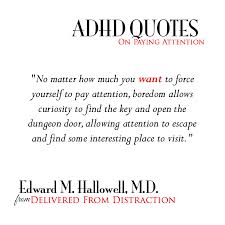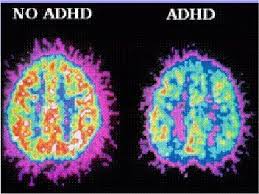My Life With ADD/ADHD
At age 59, I was diagnosed with ADD. I was in a therapy session which was, like most of my therapy sessions over the years, going nowhere. My therapist stopped, looked at me and asked, “Have you ever been evaluated for ADD?” Well,no. No one had ever suggested it and it had never occurred to me.
That evening a computer search brought up several checklists. On the first one I took, almost every question was a head slapper. I was a match for 48 of the 50 questions. That therapist was not a big help for the ADD; most therapists aren’t. The diagnosis, however, changed my life. I had always known something was wrong. I just did not function like most people, and the stress of living in a world where I didn’t quite fit in was taking a physical toll.
 I have a number of symptoms, including a short attention span if not wholly engaged, impulsivity, irritability, hyper focus at times, forgetfulness, poor attention to detail, trouble getting started, distractibility, poor memory, and absent-mindedness. Did I mention I forget stuff, like people’s names?
I have a number of symptoms, including a short attention span if not wholly engaged, impulsivity, irritability, hyper focus at times, forgetfulness, poor attention to detail, trouble getting started, distractibility, poor memory, and absent-mindedness. Did I mention I forget stuff, like people’s names?
In my fifties I was treated for a bleeding ulcer, migraine headaches, had prostate surgery, rectal surgery, knee and back problems, hernias, and was involved in years of individual and couples therapy. Much of this was due to the stress of trying to function in a world of normies.
Work had ups and downs. I always had authority problems and often missed small details. I was never in enough trouble to get fired, but I had several of those long sessions with several levels of supervisors.
School was much the same way. I am fairly smart, so I almost always got by. In college things got worse. I couldn’t get by on brains and charm. I actually had to work, and found that if the subject matter or the instructor didn’t engage me, I literally could not do the work.
I remember a political science course with an instructor who was always patronizing with students and wanted us to learn about Communism by studying Yugoslavia. By the time I realized I was not going to learn anything there, it was too late to drop the course. Another F added to my list.
I lived with anxiety that I would do or say something wrong. I also have a lifetime of replaying the things I did do wrong. Even now, 13 years after the diagnosis, I obsess about things that happened long ago. I sometimes do things on impulse I later regret. To protect my self-esteem I defend situations I get myself into that are indefensible.
Recently at work I threw some things away that needed replacing, but the replacements are not ready. My impulse got my colleagues all stirred up, and the children who come to play don’t have stick horses to ride. I don’t think they minded that the old horses I threw away were worn out.
I get irritated by noise. Big crowds, barking dogs, truck traffic, elevator music, and crying children all get to me. A neighbor friend had a little girl that cried a lot. I found myself getting angry at her to the point of wanting to harm her. I decided then that having children was not an option. To my first wife’s disappointment I got a vasectomy. I’m not sure that was the right decision, but I often believe so. I have poor impulse control.
The diagnosis at age 59 changed my life. The first thing that happened is all sorts of feelings I had not allowed myself to feel came to the surface. Anger, bitterness, rage, sadness, frustration, and just plain pain surged out. I was not much fun to live with for a while. I told Carol that I just had to be those feelings.
After the old feelings subsided and I found a good therapist and a good psychiatrist, things rapidly improved. Cognitive therapy gave me coping strategies more effective than making trouble to get my prefrontal lobes to wake up. The medication helps with focus and awareness. I can sustain tasks, where previously I was terrible at mundane tasks. Now, I am just bad at them.
For me, the biggest change is that I can now write. I have always wanted to write, but the ADD did not allow me the focus to produce anything. Now, except for occasional bouts of writer’s block, I can write. All those years of not writing were not wasted, as I studied good writing. I also practiced doing clear, concise writing when writing the daily shift reports in the water treatment plants where I worked. One or two paragraphs, but I got some practice.
Today, I have gratitude. I can manage the ADD (mostly), I have a wonderful marriage, a comfortable retirement, and I can write. What a long, strange trip it’s been.

